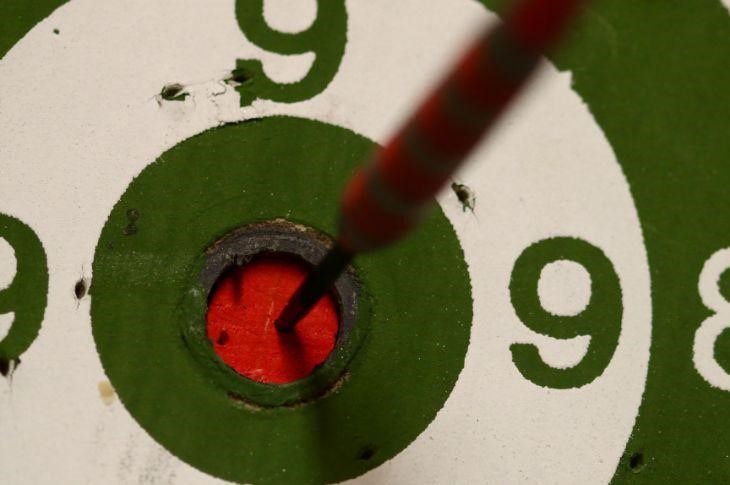- Category: Articles About Weight Loss Procedures
Photo: unsplash.com

Let us start refreshing your memory – What is a gastric sleeve?
Gastric sleeve surgery is a weight loss procedure that reduces the size of the stomach by removing part of it. The goal of this surgery is to reduce caloric intake and help people lose weight permanently. But how does gastric sleeve feel 10 years later? In this article, we will discuss the reasons why so many people are enjoying these surgical procedures and what you can expect if you decide to have one done.
Gastric sleeve 10 years later
Ten years after gastric sleeve surgery, many patients are reporting excellent results. Not only is the surgery a successful weight-loss procedure, but it also seems to be very beneficial for overall health. Patients commonly report:
- Reduced inflammation and improved joint function
- Improved sleep habits and better moods
- Increased energy levels and reduced fatigue
- Better skin quality and fewer wrinkles
Gastric Sleeve: A Beneficial Investment
For those sitting on the fence about whether to have the surgery, looking at results from gastric sleeve 10 years later can show just how life-changing this procedure can be. Patients not only appear healthier but obesity-related health conditions are minimized. This is paramount for a better quality of life, not just physically but mentally as well. So, looking at the lifelong results that can be obtained, shows how the cost of a gastric sleeve surgery can be a really beneficial investment for your health.
A Gastric Sleeve Without the Financial Burden
Exploring the option of undergoing gastric sleeve surgery in Latvia can present a financially viable alternative compared to the steep gastric sleeve UK prices. In the UK, the cost of private medical procedures can be significantly higher, and those opting for NHS weight loss surgery may face extensive waiting lists.
However, in Latvia, the combination of lower medical costs and high-quality healthcare facilities makes it an attractive destination for this procedure. By choosing Latvia for a gastric sleeve surgery, patients not only benefit from a more affordable treatment but also avoid the lengthy NHS weight loss surgery waiting list, enabling a quicker journey towards their health goals. This approach ensures that managing the cost of such a life-changing procedure doesn't become a financial burden, making it a practical choice for many.
What are the main things I need to do before and after gastric sleeve?
Before gastric sleeve surgery, it is important to make a full list of your medical and surgical needs. You will need to provide your surgeon with detailed information about your health history, current medications, and any other supplements or treatments you are taking.
After surgery, you should take it easy for the first few days.
- Avoid strenuous activity and heavy lifting.
- Allow yourself plenty of time to heal properly before returning to regular activities.
- Drink lots of fluids.
- Avoid spicy foods and beverages.
- Contact your doctor if you have any problems healing or experiencing complications.
What’s the Recovery Time for Gastric Sleeve Surgery?
Gastric Sleeve Surgery is performed under general anesthesia and typically lasts about an hour. In the UK, patients may leave the hospital in just a day, but at facilities like ours in Riga, you can recover at your own pace, benefiting from lower daily hospital costs. Before discharge, doctors ensure proper healing of incisions and check for any complications. Post-surgery, patients initially follow a liquid diet for up to two weeks, gradually transitioning to semi-solid and then solid foods over a month, under the guidance of a dietitian.
While there's typically no need for follow-up visits unless complications arise, it's recommended to wait about a month before returning to work. The complete shift to a normal diet can take 6 to 8 weeks. Full recovery varies, taking 4 to 9 months depending on individual factors, with initial pain subsiding significantly after the first month and occasional discomfort diminishing over time. By sticking to the aftercare advice of your specialist medical team, you’ll be sure to still have fantastic results from your gastric sleeve 10 years later.
Is gastric sleeve safe?
Gastric sleeve surgery is considered to be a safe and effective procedure, with some studies showing that it can help people achieve long-term success with their diet and exercise habits. However, like any surgical procedure, there are potential risks. Four things you should know:
- It may cause temporary pain and discomfort after the operation.
- You may experience nausea and vomiting following the initial consultation or during the post-operative period. These symptoms typically start to improve within a few days after the operation.
- You may have difficulty digesting food due to decreased stomach size – to avoid, follow proper meal plans.
- As with any major surgery, there is a small risk of complications. However, these risks are usually minor and manageable.
Gastric Band vs Sleeve: What’s the Difference?
When considering weight loss surgery, it's crucial to understand the differences between a gastric band and a gastric sleeve. The gastric band procedure involves placing an adjustable band around the upper part of the stomach, creating a small pouch. While this might sound appealing, it's important to note that gastric bands often require regular adjustments and can lead to complications such as slippage or erosion.
On the other hand, a gastric sleeve procedure, also known as a sleeve gastrectomy, involves removing a portion of the stomach to create a smaller, sleeve-shaped stomach. This not only limits food intake but also potentially reduces hunger hormones. The gastric sleeve has gained popularity due to its fewer long-term complications and the absence of foreign objects placed inside the body. This makes the sleeve a more straightforward and generally safer option, providing an effective and lasting solution for weight loss without the added concerns that come with a gastric band.
How Much Weight Can I Expect to Lose and How Quickly?
When it comes to weight loss after gastric sleeve surgery, it's really a personal journey for each individual. You see, how much weight you'll lose can differ a lot from someone else. This is because everyone's body is unique, with its own way of responding to the surgery. A big part of your success hinges on following the after-surgery instructions from your doctor. If you stick to the diet, get the right amount of exercise, and make the necessary lifestyle changes, you're more likely to see better results. Remember, it's not just about the surgery; it's about how you adapt to life after it. So, while it's hard to pin down an exact number for weight loss, your commitment to these changes plays a huge role in your journey.
Is gastric sleeve reversible?
The majority of people who have undergone GAS typically experience excellent results. However, there are a few potential complications that may occur after surgery, which may require additional treatment. Most experts believe that GAS can be reversed in a large percentage of cases if the patient takes the right steps and follows the instructions carefully. If you are unsure about whether or not GAS is reversible for you, speak with your surgeon before making any decisions.
Ten years ago, many people were skeptical of gastric sleeve surgery. But now, the procedure is commonly used to help obese patients lose weight and improve their health. There are also plenty of satisfied reviews from gastric sleeve patients 10 years later. Go have a look!





